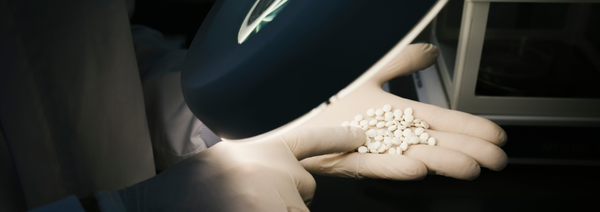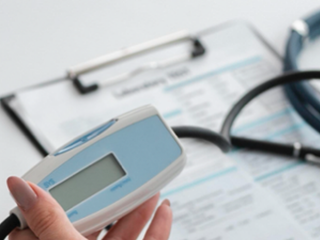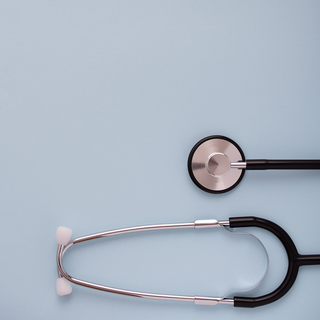What is Clinical Investigations?
Clinical investigations are an integral aspect of modern healthcare, playing a pivotal role in diagnosing and treating various medical conditions. This systematic process involves a thorough analysis of patient data, aiming to uncover valuable insights that guide medical decisions.
Clinical Investigation Definition
Clinical investigations, often referred to as diagnostic tests or medical tests, encompass a range of procedures conducted to gather crucial information about a patient’s health. These investigations serve as the foundation of medical decision-making, aiding in the identification and characterization of diseases, conditions, and abnormalities. From blood tests and imaging scans to biopsies and genetic analyses, clinical investigations provide objective data that assist medical professionals in making informed choices about patient care.
Key Aspects of Clinical Investigations:
- Diagnostic Tests: Diagnostic tests are at the heart of clinical investigations. These tests include laboratory analyses of blood, urine, and other bodily fluids, as well as imaging techniques such as X-rays, MRI scans, and ultrasound. These tests provide insights into a patient’s internal health, aiding in the detection of various conditions.
- Genetic Testing: With advancements in genetics, genetic testing has gained prominence. It involves analyzing an individual’s DNA to identify genetic mutations or predispositions to certain diseases.
- Biopsies: A biopsy involves the removal of a small sample of tissue for examination under a microscope. It is commonly used to diagnose conditions like cancer and autoimmune disorders.
- Functional Tests: These tests assess the functionality of specific organs or systems in the body. Examples include stress tests for cardiovascular health and pulmonary function tests for respiratory conditions.
The Significance of Clinical Investigations:
- Accurate Diagnoses: Clinical investigations provide concrete evidence that supports accurate diagnoses, reducing the risk of misdiagnosis and ensuring appropriate treatment strategies.
- Personalized Treatment: The insights gained from investigations allow medical professionals to tailor treatment plans to individual patient needs, enhancing the likelihood of successful outcomes.
- Early Detection: Many medical conditions can be detected at an early stage through clinical investigations, enabling timely intervention and potentially improving prognosis.
- Monitoring Progress: Clinical investigations aren’t limited to diagnosis; they also play a crucial role in monitoring the progression of diseases and the effectiveness of treatments over time.

What is Clinical Evaluation? A Vital Step in Healthcare.
In the realm of healthcare, accurate diagnosis and effective treatment rely on a fundamental process known as clinical evaluation. This methodical assessment is a cornerstone of modern medicine, enabling healthcare professionals to gather essential information about a patient’s condition and make informed decisions regarding their care.
Understanding Clinical Evaluation:
Clinical evaluation involves a comprehensive examination of a patient’s medical history, current symptoms, physical signs, and laboratory test results. This process aids in identifying the underlying causes of health issues and guides healthcare providers in developing personalized treatment plans.
Key Aspects of Clinical Evaluation:
- Medical History: A patient’s medical history provides valuable context for their current health condition. Information about past illnesses, surgeries, medications, and family history helps in forming a complete picture.
- Physical Examination: A hands-on assessment of a patient’s physical condition, including vital signs, palpation, and observation, helps identify visible signs of illness.
- Symptom Analysis: Understanding the nature, duration, and severity of a patient’s symptoms aids in identifying potential health issues.
- Diagnostic Correlation: Clinical evaluation involves correlating the findings from diagnostic tests with the patient’s overall health context, helping to pinpoint accurate diagnoses.
- Patient Interaction: Effective communication with patients ensures that their perspectives and concerns are taken into account during the evaluation process.
The Significance of Clinical Evaluation:
- Holistic Understanding: Clinical evaluation takes a comprehensive approach, ensuring that medical decisions consider not only test results but also the patient’s unique history and circumstances.
- Informed Decisions: Medical professionals can make well-rounded decisions by integrating clinical evaluation findings with diagnostic data.
- Patient-Cantered Care: Clinical evaluation places the patient at the centre, promoting a deeper understanding of their needs and concerns.
- Monitoring Treatment Efficacy: Ongoing clinical evaluation helps track patient progress and make adjustments to treatment plans as necessary.
In conclusion, clinical evaluation forms the bedrock of effective healthcare. Its systematic approach ensures that patients receive the most accurate diagnoses and appropriate care. By combining medical history, physical examination, diagnostic tests, and patient input, clinicians can navigate the complexities of human health and guide patients on their journey toward well-being.

Key Differences Between Clinical Evaluation and Clinical Investigation.
Clinical evaluation involves a comprehensive assessment of a patient’s medical history, physical condition, symptoms, and diagnostic results. It focuses on understanding the patient’s overall health context, emphasizing individual experiences and circumstances. In contrast, clinical investigation centers on conducting diagnostic tests like blood work, imaging scans, and biopsies to gather objective data for specific diagnoses.
While clinical evaluation relies on holistic understanding, patient interaction, and symptom analysis, clinical investigation relies on scientific methodologies and technology to provide measurable results for accurate diagnosis and treatment. Both processes play distinct yet complementary roles in guiding healthcare decisions.
Key Differences:
- Approach and Focus: Clinical evaluation emphasizes understanding the patient’s overall health context, incorporating subjective factors and individual experiences. Clinical investigation concentrates on obtaining objective data through diagnostic tests to confirm or identify specific medical conditions.
- Methodologies: Clinical evaluation involves medical history review, physical examination, and patient interaction. Clinical investigation relies on diagnostic procedures and laboratory tests.
- Subjectivity vs. Objectivity: Clinical evaluation takes into account the patient’s perspective and symptoms, which can be subjective. Clinical investigation relies on measurable data and objective results.
- Outcome: The outcome of clinical evaluation is a comprehensive understanding of the patient’s health, leading to personalized treatment plans. Clinical investigation yields concrete diagnostic information, guiding the choice of medical interventions.
- Patient Interaction: Clinical evaluation involves in-depth patient communication, fostering a therapeutic relationship. Clinical investigation focuses more on the technical aspects of data collection.
Applicability in the Medical Device Industry
In the dynamic landscape of the medical device industry, clinical investigations and evaluation play a pivotal role in ensuring the safety, efficacy, and regulatory compliance of various products. Clinical investigations involve rigorous testing and trials to assess the performance and potential risks of medical devices. These studies provide essential data that guide product development and regulatory submissions.
Clinical evaluation, on the other hand, focuses on post-market surveillance, continuously assessing the device’s real-world performance and monitoring for any adverse events. This process ensures that devices remain safe and effective throughout their lifecycle.
The marriage of clinical investigations and evaluation is crucial for maintaining patient safety and product quality. They provide manufacturers, regulatory bodies, and healthcare professionals with the information needed to make informed decisions about device design, manufacturing processes, labelling, and usage instructions.
In the medical device industry, the combined efforts of clinical investigations and evaluation help maintain the highest standards of patient care, regulatory compliance, and technological advancement.






